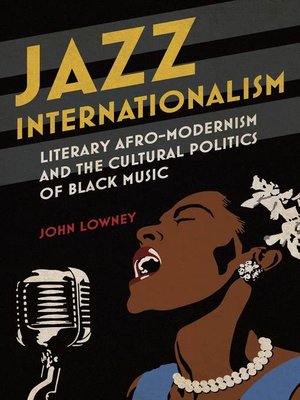Jazz Internationalism
ebook ∣ Literary Afro-Modernism and the Cultural Politics of Black Music · New Black Studies
By John Lowney

Sign up to save your library
With an OverDrive account, you can save your favorite libraries for at-a-glance information about availability. Find out more about OverDrive accounts.
Find this title in Libby, the library reading app by OverDrive.



Search for a digital library with this title
Title found at these libraries:
| Library Name | Distance |
|---|---|
| Loading... |
Jazz Internationalism offers a bold reconsideration of jazz's influence in Afro-modernist literature. Ranging from the New Negro Renaissance through the social movements of the 1960s, John Lowney articulates nothing less than a new history of Afro-modernist jazz writing. Jazz added immeasurably to the vocabulary for discussing radical internationalism and black modernism in leftist African American literature. Lowney examines how Claude McKay, Ann Petry, Langston Hughes, and many other writers employed jazz as both a critical social discourse and mode of artistic expression to explore the possibilities—and challenges—of black internationalism. The result is an expansive understanding of jazz writing sure to spur new debates.
| Cover Title Contents Acknowledgments Introduction 1. "Harlem Jazzing": Claude McKay, Home to Harlem, and Jazz Internationalism 2. "Black Man's Verse": The Black Chicago Renaissance and the Popular Front Jazz Poetics of Frank Marshall Davis 3. "Do You Sing for a Living?": Ann Petry, The Street, and the Gender Politics of World War II Jazz 4. "Cultural Exchange": Cold War Jazz and the Political Aesthetics of Langston Hughes's Long Poems 5. "A Silent Beat in Between the Drums": Bebop, Post-Bop, and the Black Beat Poetics of Bob Kaufman Conclusion. "A New Kind of Music": Paule Marshall, The Fisher King, and the Dissonance of Diaspora Notes Works Cited Index | "Recommended."—Choice"Lowney is at his best when he turns his attention to the specific forms of jazz and its literatures. He is a careful close reader with an expert eye for minute technical correspondence between literary and musical forms." —African American Review
"Jazz Internationalism is thought provoking. . . certain to stimulate the intellectual interests of a wide array of scholars of black radicalism, Afro-modernism, and jazz." —The Journal of African American History
|John Lowney is a professor of English at St. John's University. He is the author of The American Avant-Garde Tradition: William Carlos Williams, Postmodern Poetry, and the Politics of Cultural Memory and History, Memory, and the Literary Left: Modern American Poetry, 1935-1968.







